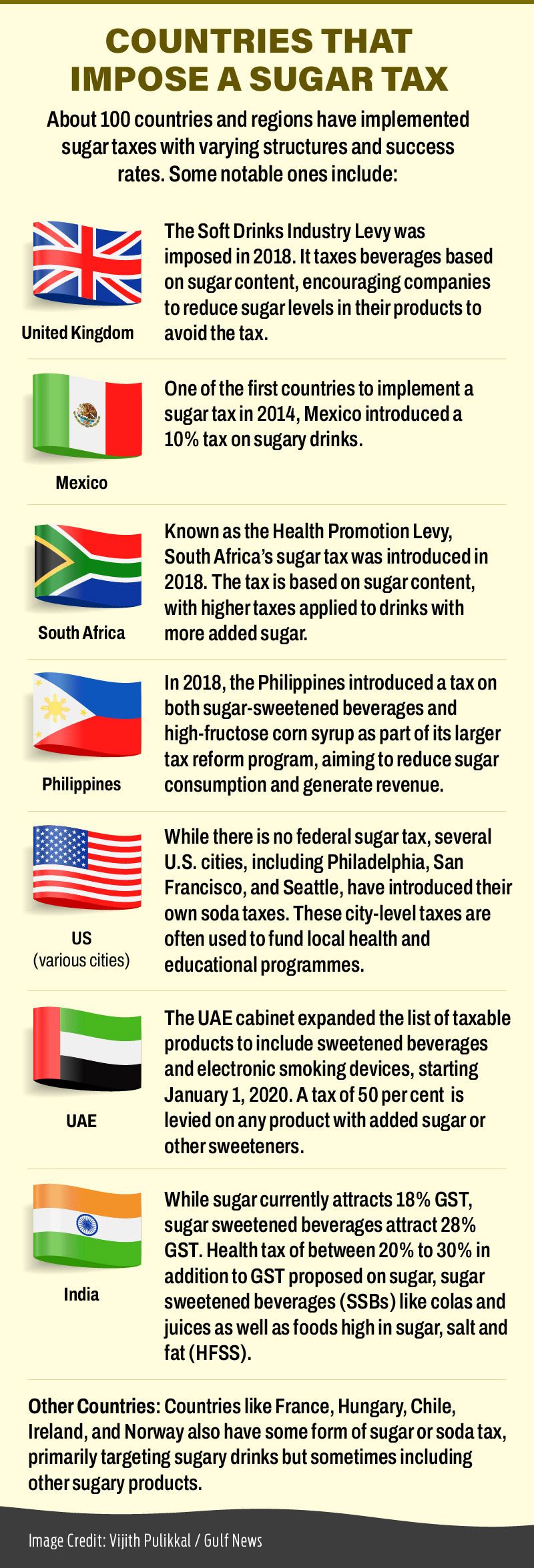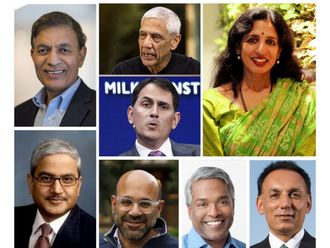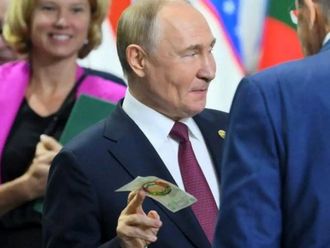
There was a moment in history when sugar was so valuable that people locked it up in a "sugar safe".
Sanskrit literature from ancient India, written between 1500-500 BC, offered the first documentation of the cultivation of sugarcane.

However, the way people view this sweet, addictive carbohydrate has changed over the years.
Today, sugar addiction in seen as the main trigger behind the global obesity epidemic, heart disease, Type 2 diabetes, chronic inflammation, and even Alzheimer’s disease.
Certain cancers (oesophagus, pancreas, colon and rectum, breast, kidney, thyroid, and gallbladder) have also all been linked to obesity.
In 2022, 1 in 8 people in the world were living with obesity, according to the World Health Organisation (WHO).
An estimated 184,000 deaths and 8.5 million disability-adjusted life years (DALYs) worldwide were attributable to sugar sweetened beverages (SSB) consumption, as per the World Bank's 2010 estimates.
As a result, sugar taxes are on the rise.
We explore their effectiveness and the debate surrounding them:
Sugar taxes: Early implementers
To combat this, at least 54 countries/territories are turning to a novel weapon: sugar taxes. These levies on sugary drinks and foods aim to make them less affordable, discouraging consumption and promoting healthier choices.
Norway, a pioneer in sugar taxation (1981), boasts a low national obesity rate. However, Samoa, which implemented a sugar tax in 1984, still struggles with high obesity levels.
This highlights the complex factors at play in tackling obesity.
Globally, momentum is building

Today, more and more countries have embraced sugar taxes. Notable examples include:
UK:
The 2018 Soft Drinks Industry Levy taxes beverages based on sugar content, incentivising manufacturers to reduce sugar levels.
Mexico:
A frontrunner with its 2014 tax on sugary drinks, Mexico has seen a reduction in consumption.
South Africa:
Their 2018 Health Promotion Levy applies higher taxes to drinks with more added sugar. Dr. Hoda Abdel Magid (Stanford University) pointed to a 2021 study published in PLOS Medicine, which found that the tax led to reduced intake of taxed beverages, although many people switched to untaxed options, like fruit juice.
UAE:
The UAE implemented a 50% excise tax on sugar-sweetened beverages (SSBs) starting from January 1, 2020. This tax was introduced as part of broader efforts to promote healthier lifestyles and reduce the consumption of sugary drinks, which are linked to various health issues such as obesity and diabetes.
Philippines:
In 2018, the Philippines introduced a tax on both sugary drinks and high-fructose corn syrup to decrease consumption and raise revenue.
USA:
While no federal tax exists, several cities like Seattle and San Francisco have implemented their own soda taxes.
Taxing sugar, shaping habits
By making sugary drinks less affordable, sugar taxes aim to discourage consumption and promote healthier choices.
These taxes not only improve public health but also generate revenue that can be used to fund healthcare programs and other social initiatives.
Studies show that sugar taxes do lead to significant reductions in sugar consumption.
Sugar taxes work by:
- Increasing the price of sugary drinks and foods.
- Encouraging "reformulation" by manufacturers to reduce sugar content to avoid tax penalties.
- Shifting consumer behaviour towards healthier alternatives.
UK: Coca-Cola has reduced the sugar content of some of its biggest brands, including Sprite, Fanta and Dr Pepper — the move reportedly left sales unaffected. The company claimed cuts in the sugar content came alongside “providing more drinks with nutrition benefits” and offering more small packaging choices.
Mexico: After Mexico implemented a sugar tax on sugary beverages in 2014 (1 Mexican peso per litre), PepsiCo adjusted some of its soda formulas to cut sugar content. PepsiCo also introduced smaller-sized bottles, giving consumers lower-calorie choices and mitigating the impact of the tax.
Studies show promise
Research offers promising evidence of sugar taxes' effectiveness:
Reduced consumption: A 2024 UC Berkeley study showed a significant decline in sugary beverage purchases in five US cities after tax implementation.
Long-term impact: University of Illinois Chicago studies found a sustained reduction in sugar consumption even two years after Seattle's tax introduction.
Healthier choices: UK research suggests a shift towards lower-sugar alternatives after the sugar tax.
• The findings indicated a 14 per cent decline in the purchase of sugary drinks, with many consumers opting for lower-sugar or no-sugar alternatives.
• Interestingly, the tax not only reduced sugary beverage sales but also prompted manufacturers to reformulate their products, leading to a reduction in sugar content across various brands.
• This indicates a broader industry shift towards healthier options.
184,000
estimated number of deaths worldwide attributable to sugar-sweetened beverages consumption in 2010 (World Bank)South Africa sugar tax study
A 2021 study published in PLOS Medicine assessed the impact of South Africa's sugar tax on taxed and untaxed beverages among 2,400+ adults aged 18–39 in Langa, South Africa.
Using 24-hour dietary recalls, researchers surveyed participants pre-tax (February–March 2018, n=2,459) and post-tax (February–March 2019, n=2,489).
2,400
number of adults who participated in the survey to assess the impact of South Africa's sugar tax on beveragesThe study, which uniquely considered reformulation as distinct from behavioural changes, found significant reductions in taxed beverage intake.
The research, based on a high-consuming, low-income sample, highlights how policies like taxes can drive "reformulation".
However, these reductions were partially offset by increased consumption of untaxed beverages.
Such studies collectively highlight the effectiveness of sugar taxes in not only curbing sugary drink consumption but also in influencing public health positively over time.
Beyond health: Economic benefits
These taxes not only improve public health but also generate revenue that can be used to fund healthcare programs and other social initiatives. Additional revenue from sugar tax can be used for:
- Funding public health programs
- Investing in education initiatives
- Supporting infrastructure development.
The debate continues
While sugar taxes show promise, some argue:
- They unfairly burden low-income populations
- Consumers may switch to untaxed sugary alternatives
- More research is needed on long-term health impacts.
A sweet victory (for public health)
A recent study published in the JAMA Health Forum has revealed the powerful impact of soda taxes on reducing sugar consumption. US cities like Philadelphia and San Francisco, which implemented these taxes, have witnessed a significant decline in sugary drink consumption.

The study found that for every 1 per cent increase in the price of sugary beverages, consumption decreased by 1 per cent. This translates to a substantial 33 per cent reduction in overall consumption, a figure that experts believe will have a significant positive impact on public health.
Dr. Dean Schillinger, director of the Health Communications Research Program at UC San Francisco, emphasised the potential health benefits of these taxes. By discouraging the consumption of sugary drinks, these taxes can help combat obesity, diabetes, and other health issues.
It’s a delicate balancing act, given the interests involved. Some time ago, when Cristiano Ronaldo appeared in a video to encourage people to drink water, Coca-Cola lost $4 billion in market value.
The future of sugar taxes
Public health experts highlight industry resistance against the tax, as well as the need for affordable, healthy beverage options. Dr. Charles Dinerstein, Director of Medicine at the American Council on Science and Health (ACSH), an industry-backed lobby, cited "shocking" US data from a four-cities study which shows that "raising taxes on sugary beverages didn't have the intended results".
The science, however, is clear: excessive sugar consumption is linked to unhealthy deposits in the body, a host of health problems. As research continues and tax structures evolve, the global trend points towards sugar taxes as a valuable tool in the fight against obesity and its associated health problems.
Amidst the debate and despite their limitations, recent studies do offer insight into SSB taxes’ potential to reduce sugar intake.
While some argue that sugar taxes disproportionately affect low-income individuals, the long-term health benefits and potential revenue generation make them a compelling tool in the fight against chronic diseases.
With chronic inflammation-related diseases soaring globally, policymakers are taking a firm stand.
As the global health community continues to grapple with the obesity epidemic, sugar taxes are poised to play a crucial role in shaping a healthier future.










